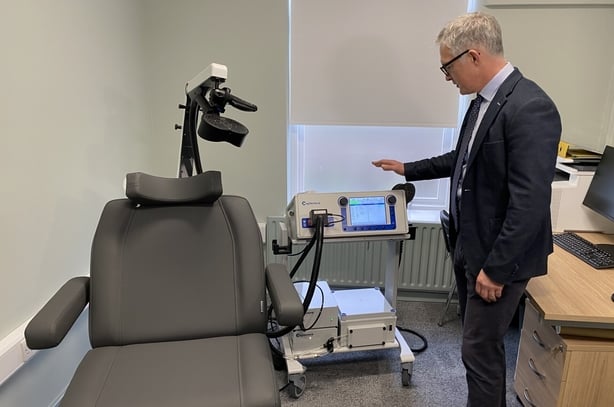St John of God Hospital in Dublin has said it is the first hospital in Ireland to introduce a special treatment for patients who do not have success with conventional treatment for depression.
Repetitive Transcranial Magnetic Stimulation (rTMS) therapy is a non-invasive treatment for treatment-resistant depression.
It uses magnetic pulses to stimulate specific brain regions, promoting the brain's ability to form new connections and regulate mood.
Doctors say that clinical studies have shown that around 50% of patients experience significant symptom relief with rTMS treatment, with about a third achieving remission from their depression symptoms.

The hospital said it is a consultant-led service that can be provided on an outpatient basis, without anaesthesia.
The typical treatment course consists of daily sessions over four to six weeks, with each course lasting around 20-40 minutes.
Dr Simon Mitchell, consultant psychiatrist and head of neuromodulation services at St John of God, said the treatment represents a significant advancement in mental health services.
He said it offers new hope to patients who have not found relief through traditional methods.
We need your consent to load this rte-player contentWe use rte-player to manage extra content that can set cookies on your device and collect data about your activity. Please review their details and accept them to load the content.Manage Preferences
Patients can drive, work and resume daily activities after their sessions.
The treatment was approved for depression treatment by the US Food & Drug Administration in 2008 and also by the UK's National Institute for Health and Care Excellence.
In Ireland, 12% of young people aged 15-24 years report chronic depression, the highest rate in Europe.
Around 4.5% of the European population experience depression, with higher rates in women (8.8%) than men (5.3%).







